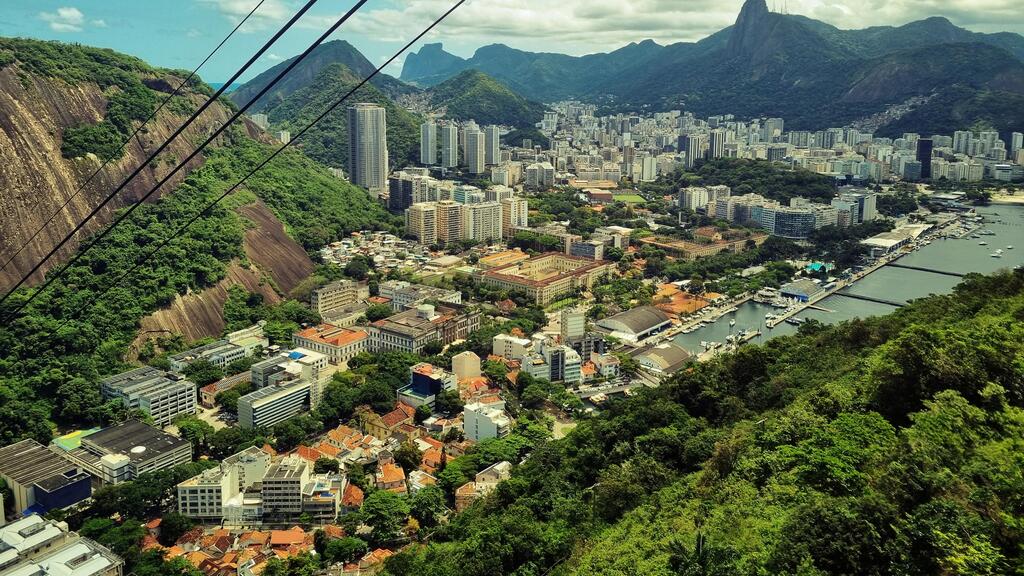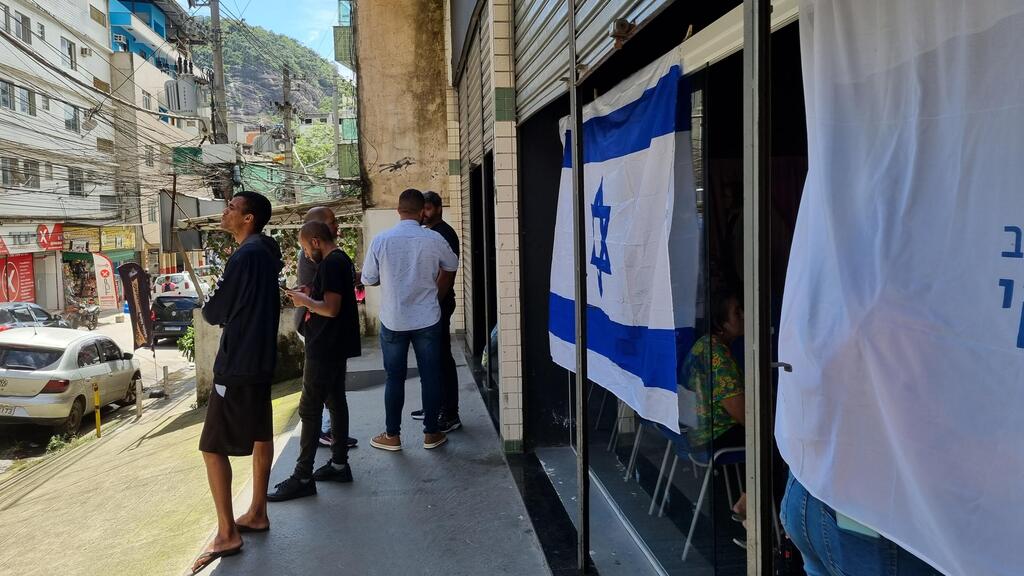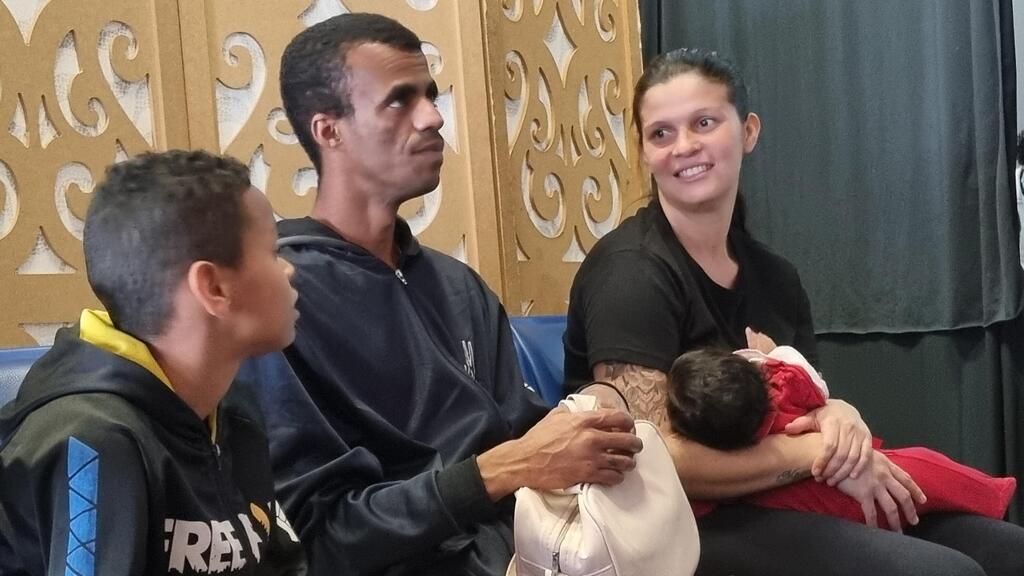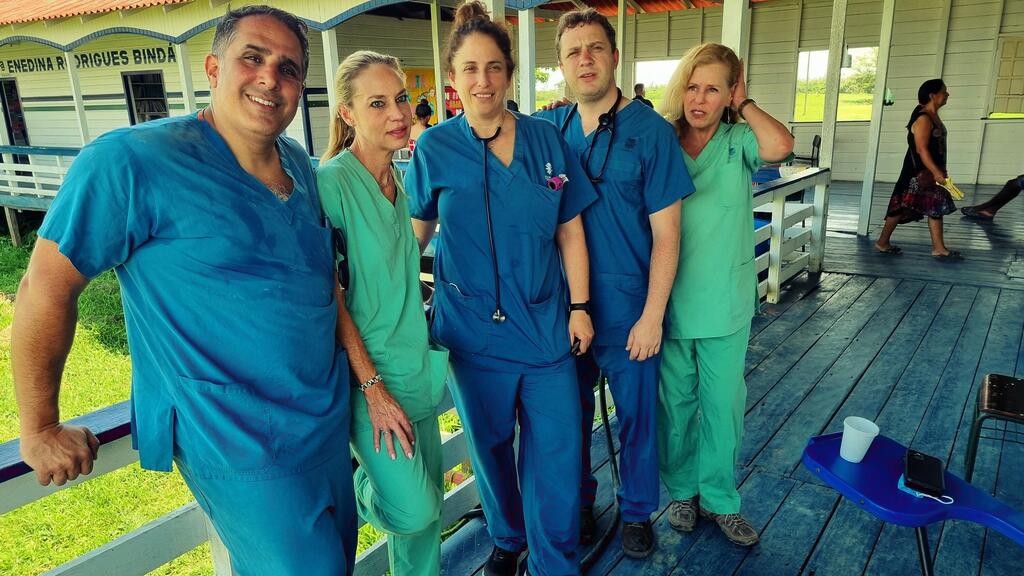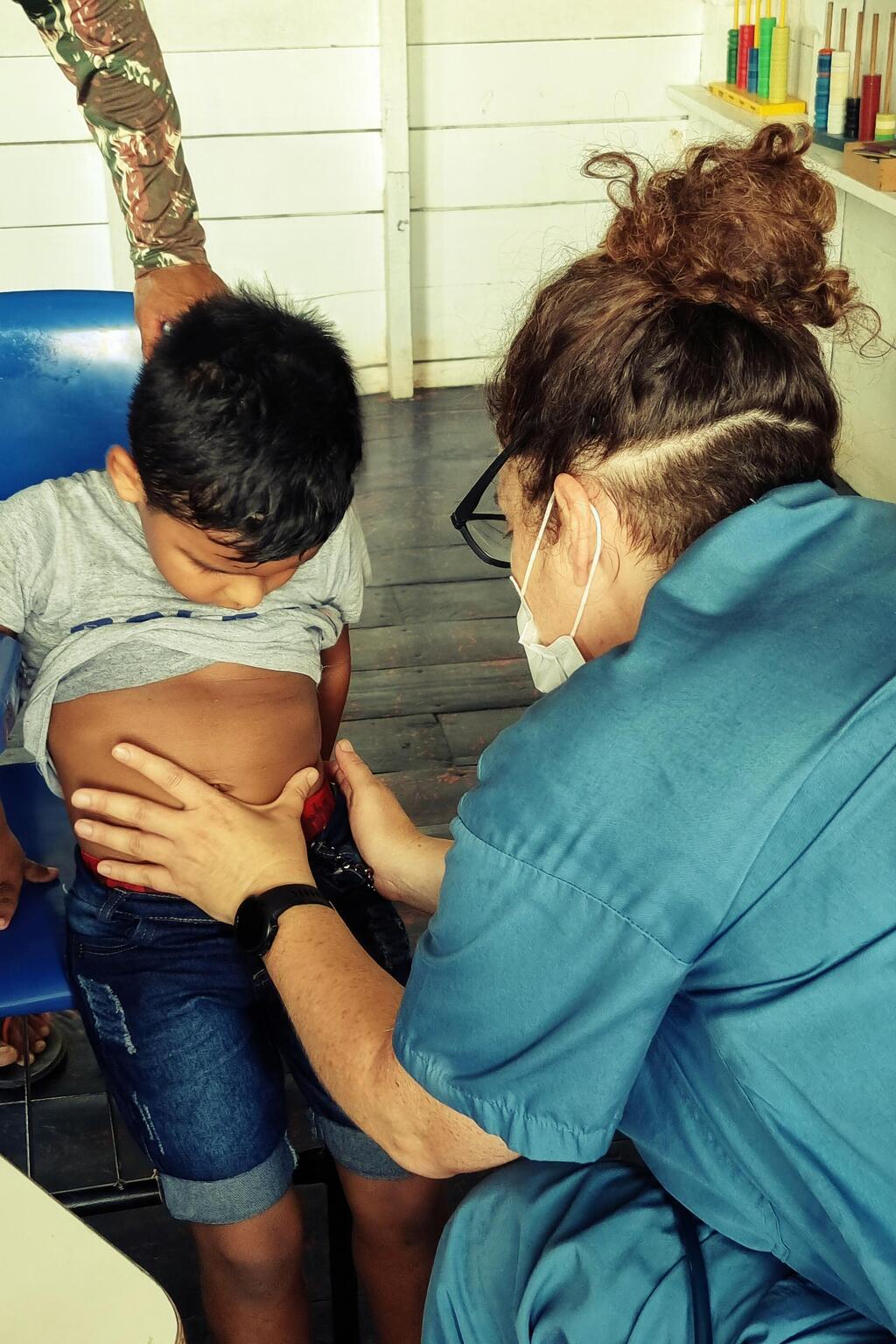Getting your Trinity Audio player ready...
Earlier this winter, on a ship anchored on the banks of the Amazon river in the Brazilian state of Amazonas, some 50 navy soldiers were seen forming two straight lines, saluting the Israeli Ambassador to Brazil Daniel Zonshine and a team of Israeli doctors.
To get there, the Israeli medical professionals had to take two connecting flights. Heading the expedition is Dr. Ronit Almog, senior gynecologist and head of the Meviim Haim Laolam (Bring life to the world) humanitarian project.
With two huge suitcases and several handbags each, most of them brought along some advanced medical equipment required for the ambitious project.
The local military band played a somewhat offbeat version of the Israeli national anthem, Hatikva, followed by the Brazilian one. It was an emotional moment for many, since those doctors were about to embark on a sail through the Amazon River, providing medical assistance, the likes of which the local population have never experienced.
Brazil is breathtaking. But large swaths of its population live in poverty. Looking from above, you can see beautiful seaside cliffs, white sandy beaches and carnivals full of color and joy.
But when you're at ground level, you can see something else: crime-stricken favelas, isolated villages and gut-wrenching destitution.
That's where these doctors were going. The kind of locations where advanced western medicine is next to impossible to come by.
First stop was the Rio de Padres favela in Rio de Janeiro. A place devoid of basic sanitation infrastructure, with extremely narrow street corridors, stone steps and very basic looking homes. There, the staff found an adequate spot to build a make-shift clinic with a portable pharmacy, where they can unpack all their equipment and get to work.
Upon hearing about it, locals started to slowly gather around.
"We came here to work with local volunteer doctors," says Dr. Almog. "We're here to help the destitute who live in extremely crowded conditions with no sense of security. People are afraid to walk the street and the option of advanced medical care is non-existent. When they heard that doctors from Israel were coming over, they flocked here."
Among the focal points of the expedition was gynecology. Breast cancer, for example, is the most common type of cancer among Brazilian women, and the mortality rate does not stop climbing.
From eye tests to clinical breast exams and cervical cancer screenings, each woman came with her own set of medical concerns and the doctors were doing all they could to provide assistance.
From Rio's favelas, the doctors moved onward to the most isolated Brazilian villages. This voyage, however, cannot be done via land. About one million people are scattered along the Amazon river banks, with several kilometers often separating them.
Brazilian authorities came up with an unusual solution to reach these places, converting defunct navy ships into sailing hospitals, cruising along the river, providing aid to all those who converge to get onboard.
On the ship's ground floor, in a narrow corridor, there were rooms where the doctors performed the medical exams. Two dentist rooms, a room for mammography exams, a room with a CT machine, and several others.
"Anyone who needs a more advanced examination, like ultrasound, has to come aboard the boat to get it," says Dr. Almog.
"People are already waiting to get onboard, but there's hardly any room to congregate, so we begin by examining them in the village where they live and then move them to the ship on a case-by-case basis."
While conditions in make-shift clinics are anything but ideal, the staff was doing its best. Some improvisation required turning a dentist's chair into one for gynecology examinations, for example.
6 View gallery
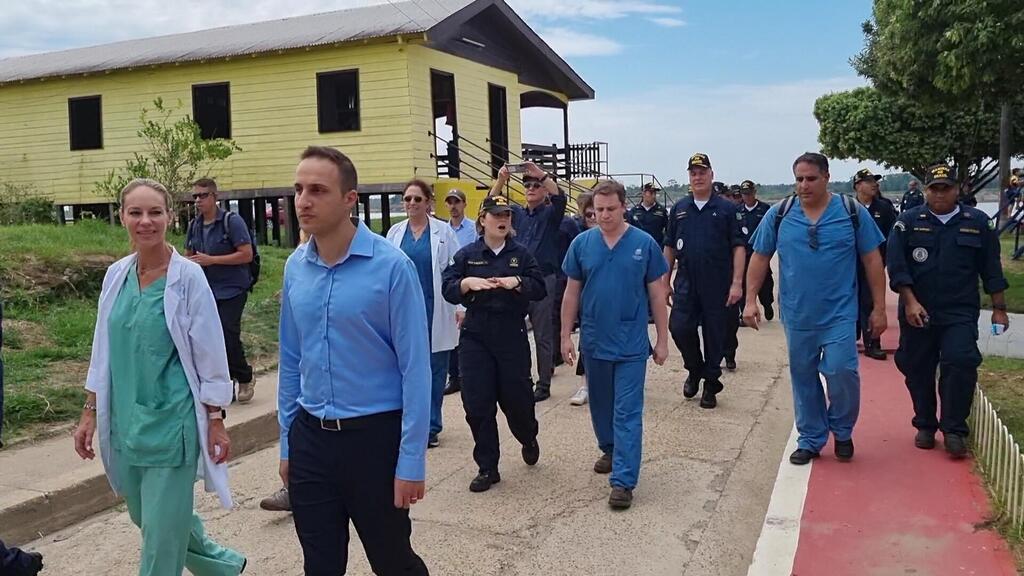

Israeli doctors and Brazilian authorities on their way to the boat
(Photo: Doron Cooperstein)
Since locals get to see a doctor only about twice a year, they rushed to take advantage of this rare opportunity. Among them was a 79-year-old man whose severe medical problem has gone untreated for over a year.
He has a serious cardiac insufficiency, more commonly known as heart failure. So, basic activities, like walking, leave him exhausted. He has leg edema and the only medication he's taken up until now had been insufficient.
Another woman, who had given birth three months prior, complained of being unable to nurse her baby. Since she was out of contraceptives, it's been two months since her last period. Doctors provided her with a postnatal exam and prescribed an endogenous steroid to help with the menstrual cycle.
After a week sailing along the Amazon, the staff moved on to the neighboring Guatemala, full of volcanoes, rainforests and ancient Mayan sites, for another week of medical volunteer work.
Ambassador Zonshine said the impact of such missions on the image of Israel is very important. "The local media here covered the work of the doctors all throughout the mission, and a large public was exposed to the beautiful face of our country."


